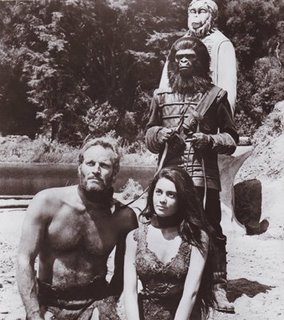#2: Earth Abides (1949) by George R. Stewart
"Generations come and go, but the earth abides forever." --Ecclesiastes 1:4

Stewart (1895-1980) was a literature professor at the University of California, and he’s thought to have used the real-life case of Ishi (“man”), the last surviving member of an American Indian tribe who surfaced in California in the early 20th century, as inspiration for the main character in Earth Abides, Isherwood “Ish” Williams. Ish is a graduate student in geography who’s out in the hinterlands when a terrible viral plague washes out most of the human population. When he comes to find what’s happened, he looks at the incident in almost Malthusian terms and decides to become the documenter of the natural world sans humanity. Later, he becomes the leader of a new community called The Tribe, along with his lover/partner Em (who is clearly, though not explicitly said by Stewart, black--how amazing is that for a 1949 science-fiction novel?). The rest of the novel sees Ish’s frustration in trying to instill culture and creative thought (i.e., what he calls “civilization”) in a group that’ll have none of it--food and supplies are too easy to get from the stores, and who needs book learning when there’s no human society outside the small group? In the end, we see the real direction of humanity after civilization fails, and you’ll have to find out for yourself what that is.

This is truly a lost classic. Once a book taught in high school and college English classes, try finding ten people who’ve even heard of it now. And that’s a shame because it’s fantastic. The post-apocalyptic subgenre, along with dystopian literature, has been the backbone of sf writing during large periods of its history. This particular member of that subgenre is unique. No biker gangs warring over gasoline or large insects prowling the Arizona desert or apes ruling over humans in slavery. Stewart instead ponders the effects humans have on the natural world, and he takes a refreshingly pragmatic view on how easily/difficultly the leftover humans would survive if 99.9% of us kicked it tomorrow.

Sexism? Maybe. There’s certainly a 1940s separate spheres, division of labor thing going on, but Em and several other of the women in The Tribe are strong. However, the men make the decisions and do all the dangerous stuff. I give it a little slack because of the time in which it was written. Racism? Hell no. While there is a questionable scene with some “Negroes” in Arkansas, the white man Ish thinks the black woman Em is the cat’s pajamas, and he chooses her to be his lover/mate not because of her race but because she’s strong, tender, and intelligent. Anti-religion? Well…I’m going to cowardly claim ignorance on that one. How would someone with a MA in Comparative Religion know anything about that?

The book came back into print earlier this year, so read it for yourself already.



0 Comments:
Post a Comment
<< Home